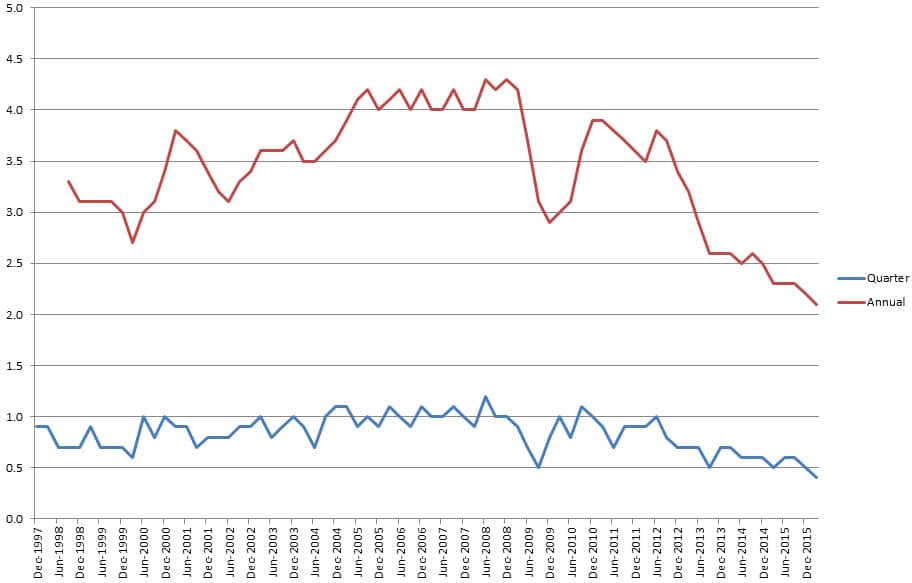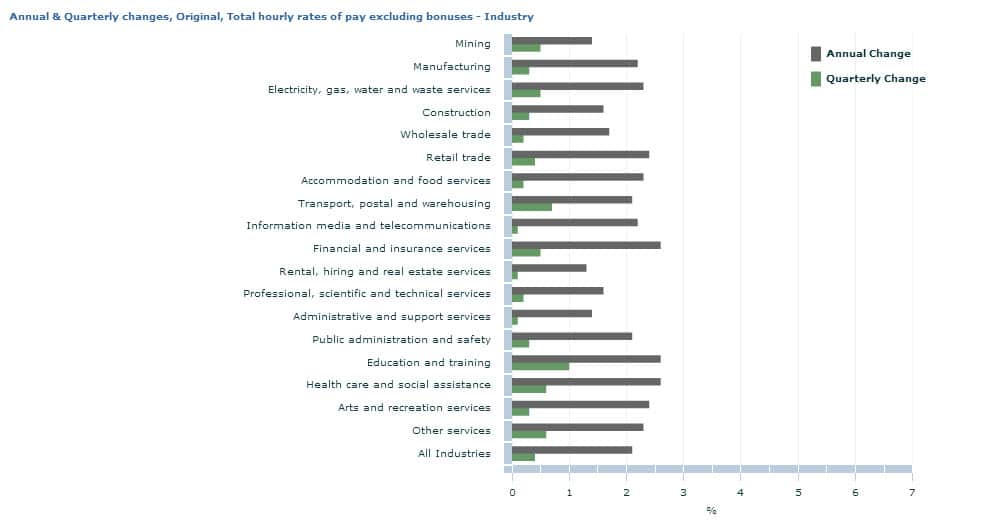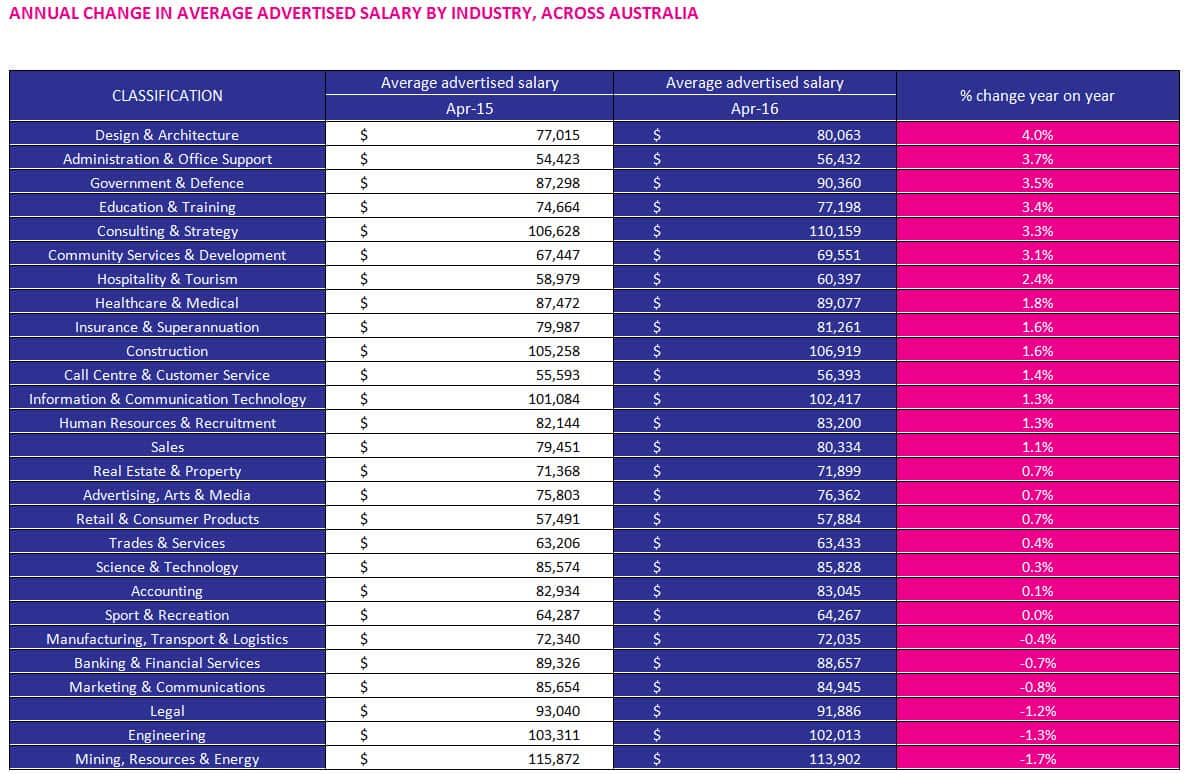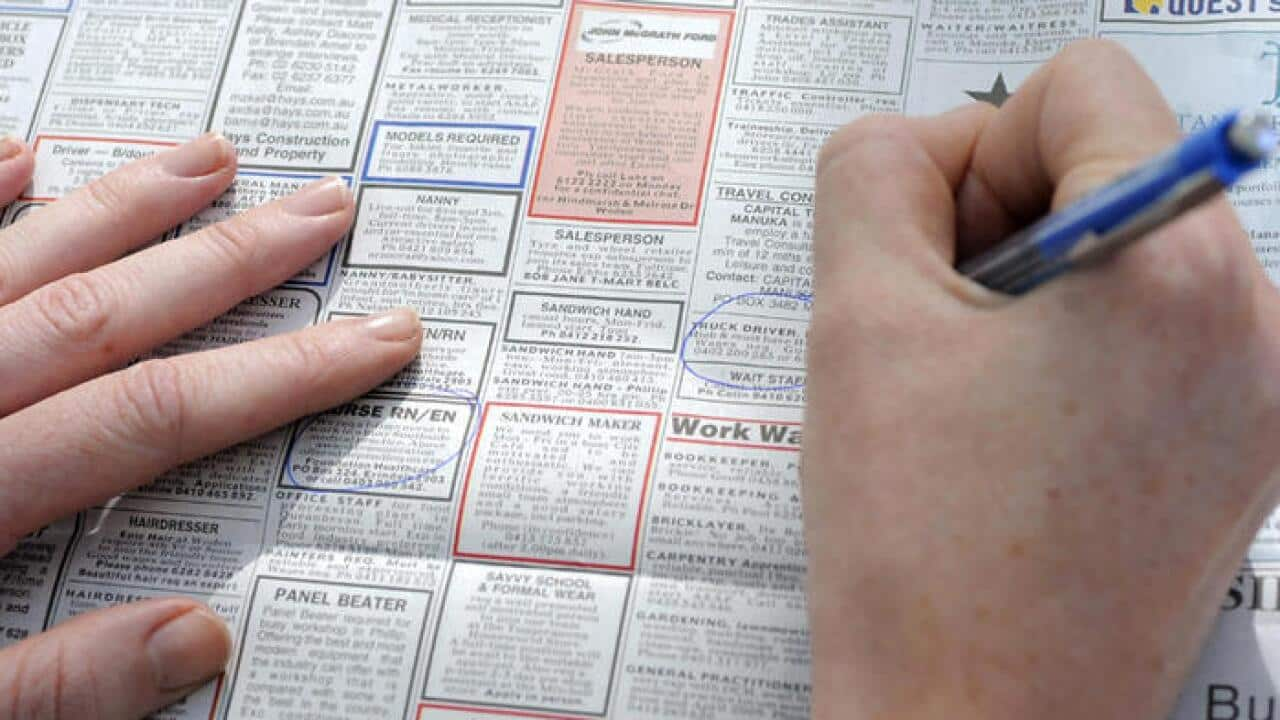Your wallet may not necessarily be lighter, but it certainly isn't being filled like it used to.
The Australian Bureau of Statistics says the Wage Price Index rose just 0.4 per cent in the March Quarter.
In annual terms, that's just a 2.1 per cent pay increase, the lowest since the ABS started recording this series in 1998. The ABS says in the year to March, financial and insurance services, education and training, and healthcare and social assistance jobs saw the best pay increase, although they are below three per cent.
The ABS says in the year to March, financial and insurance services, education and training, and healthcare and social assistance jobs saw the best pay increase, although they are below three per cent. NAB Markets Chief Economist Ivan Colhoun says that's because inflation is soft, which is also why the Reserve Bank cut official interest rates earlier this month.
NAB Markets Chief Economist Ivan Colhoun says that's because inflation is soft, which is also why the Reserve Bank cut official interest rates earlier this month.

Source: ABS/SBS

Source: ABS
"Employers don't feel like they need to give those big wage rises."
Soft wages do have a flip side though, Mr Colhoun added, as they help employers employ more people.
"Because unemployment is somewhat elevated, I think businesses have more of the upper hand in wage negotiations at this time."
For wages to rise, we would need to see a fall in the unemployment rate which currently stands at 5.7 per cent.
The next official jobless figures will be released tomorrow.
SEEK Employment Managing Director Michael Ilczynski says employees can still ask their bosses for a pay rise.
"Start it as a performance conversation, rather than a pay conversation. You are really going to need to make the case, so talk about how your performance has driven an increase in the company's performance."
Of the positions listed on Seek's database, the biggest increases in pay over the year to April where in Design and Architecture while Mining, Resources and Energy saw the biggest decreases.

Source: SEEK
RELATED READING:

Australian wages continue sluggish growth
Share

